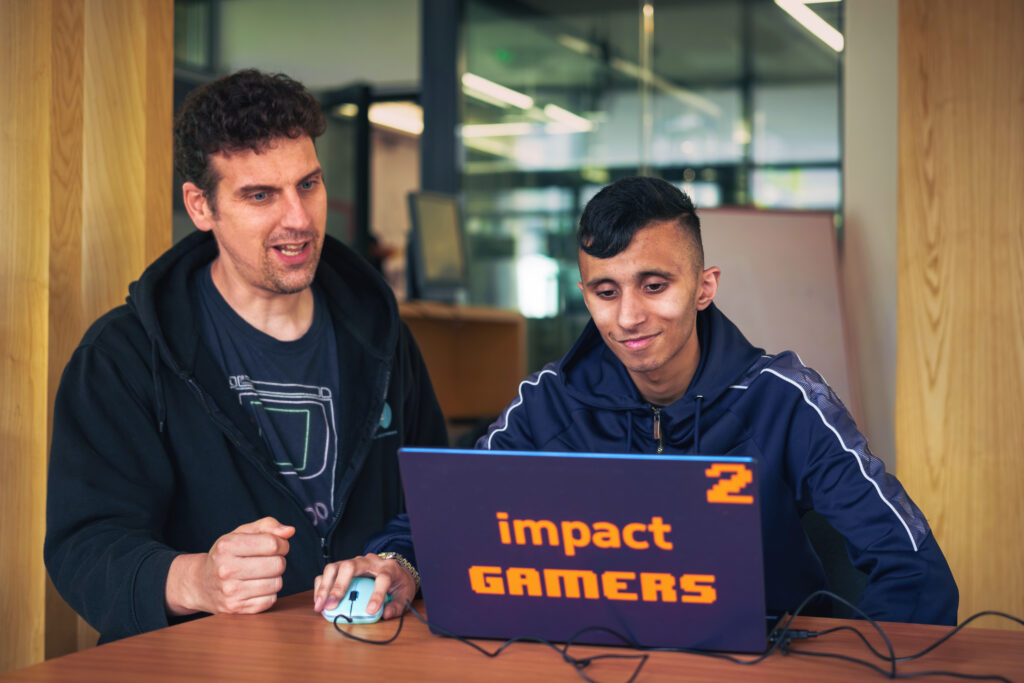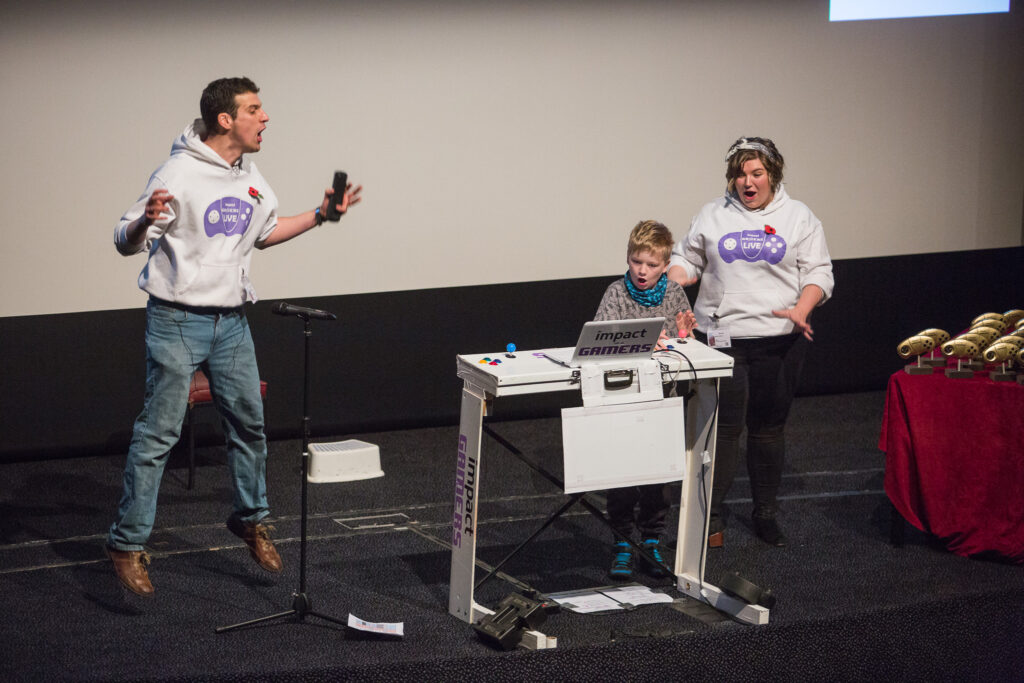In this interview, he shares what drives his creativity, the unexpected moments that have stood out during the project, and why game-making is such a powerful tool for self-expression.
Q: What inspired you to pursue a career in digital arts?
Ever since I was young, I loved making things—building, painting, drawing. But I often found that what I wanted to create was more complicated than I was able to achieve. Then I discovered game-making on a computer, and suddenly, everything became much simpler. Any mistake could be fixed, issues could be cleared up, and best of all—there was no tidying up afterwards! No washing paintbrushes, just a folder full of files that I could neatly archive.
I was also told by my dad that it was hard to find a job you truly enjoy, so I set out to prove him wrong. I decided I was going to work in animation, video editing, or multimedia because I loved it so much.
Q: Why did you get involved in the Bradford Digital Creatives project?
Youth work has always been a big part of my life. I attended youth groups as a kid, became a Junior Leader, and later helped out at a local church youth group during university. I’ve always enjoyed investing in young people and combining that with digital creative skills. That’s why I founded Impact Gamers—to inspire kids to create positive computer games.
Bradford Digital Creatives ticked all the right boxes for me. While Impact Gamers primarily works in BD5, this project allowed me to reach high schools across the whole Bradford district, which was an incredible experience.

Q: What has been the best part of working on the project so far?
Without a doubt, seeing young people’s creativity. There’s something special about watching a young person take pride in their work. Helping them create something they genuinely want to make is the best part.
And of course, the laughs! Sometimes things don’t go as planned—like a hilarious bug in a game that everyone finds funny. Those moments, where both the player and the creator experience joy, make the whole process worthwhile.
Q: Were you surprised by anything during your experience with the project?
I’m always surprised by how many Year 9 students have gone through so much of their education without ever making a game. Coding is often taught in schools, but coding on its own can feel like a dry, technical subject.
Game-making, on the other hand, is a mix of art, music, storytelling and interactivity. If you strip all of that away and just focus on the maths behind it, you’re left with pure coding—which can be quite uninspiring for a lot of kids. I think more schools should embrace game-making as a creative and engaging way to introduce digital skills.
Q: Why do you think it’s important for students to participate in arts and cultural activities like this?
It’s vital because these activities help young people express themselves and understand others. When you’re young, it’s not always easy to see things from someone else’s perspective. But when someone creates art, you immediately get a glimpse into what makes them tick—their interests, their emotions, their inspirations.
Digital arts, in particular, make it even easier to share work widely. Platforms exist where young people can showcase their creativity instantly. Plus, let’s be honest—there’s no mess, no washing paintbrushes!
Q: Did you take part in anything similar when you were at school?
No, unfortunately. I would have loved it! We had drama groups visit, but never digital arts groups.
What inspired me instead were TV shows that featured game-making. I saw one that showcased a games-making program, asked for it for Christmas, and then spent weekends with a friend creating silly little games together. That hands-on experience with a friend was more inspirational than anything I learned in school.

Q: Did the experience lead to any insights or ideas for your own work?
Absolutely. When you work with young people in a school environment, you see an incredible variety of perspectives. Every time a student creates a game, there’s often a moment where I think, that’s a great idea!
I haven’t directly taken any concepts from them—yet! But I do store those ideas in my mind for potential future projects. Young people bring fresh ways of thinking about game mechanics, storytelling, and player interaction, which always inspires me.
Q: If students could take away just one thing from their experience with you, what would you want it to be?
That they can create. Game-making isn’t some secret society where you need decades of training. Within an hour, you can make your own game.
I hope students walk away with a “can-do” attitude towards digital creativity. I want them to feel more confident in their abilities and understand that game-making—and digital arts in general—is something they can do.